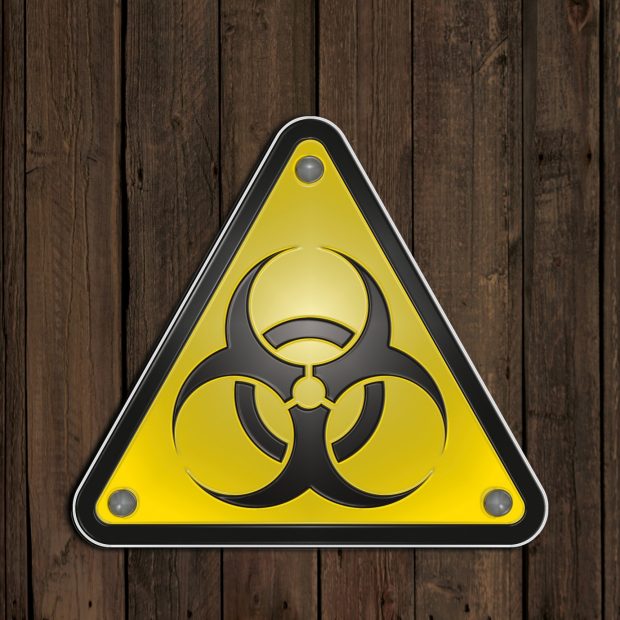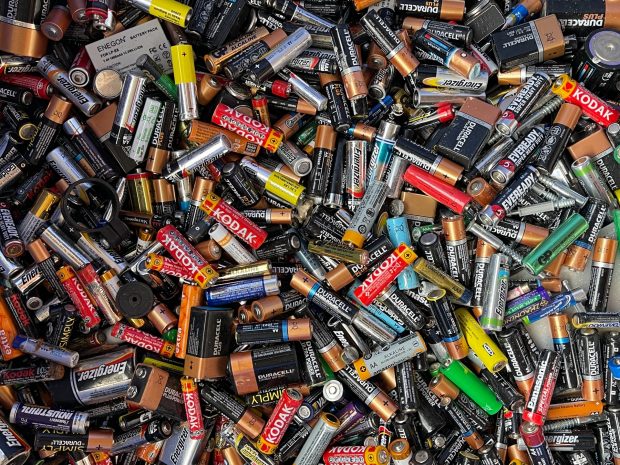Around the world, 13 tons of hazardous waste get thrown out every second.
Not all of that, though, ends up in the right place, which can lead to serious consequences. If your business works with any type of hazardous materials, you need to ensure you’re using the proper hazardous waste disposal methods so you don’t put yourself and the environment at risk.
We’ve put together this guide to show you the proper way to get rid of dangerous waste and why you should always follow the necessary regulations.
So let’s get started.

Why Can’t You Throw Hazardous Waste Out With the Rest of the Garbage?
If hazardous waste makes it into traditional landfills, it can pose a safety hazard to both the environment and the sanitation workers at the site.
Many types of dangerous waste are flammable, which can lead to fires or explosions. However, the major issue comes down to the chemicals found in this waste.
When they’re exposed to the earth, these chemicals absorb into the ground and can get into the area’s waterways. After this, rivers and even small streams will carry this contamination into our drinking water, agricultural crops, and more. The chemicals can cause plants to die and lead to sickness (and other medical problems) in animals and humans.
Some categories of hazardous waste can also carry and spread diseases. Dumping hazardous materials out with the rest of the normal garbage can do some major harm to the local area.
What Happens If You Don’t Dispose of Hazardous Waste Properly?
If you don’t get rid of hazardous materials the right way and something goes wrong, the state is responsible for stopping and, if possible, reversing the damage. But that doesn’t mean your business will get off scot-free.
You will likely have to pay an expensive fine. Since a majority of customers want to give their money to eco-friendly brands, you might find your business losing customers (and money) as well.
How to Handle Your Hazardous Waste Disposal
Unless you have a lot of experience dealing with hazardous materials, you shouldn’t handle your business’s hazardous waste management on your own. Outsourcing the job to a qualified company such as Sharps Waste Disposal will be the best use of your time and money.
Look for companies that provide hazardous waste clean-up and hazardous waste transportation, do inspections of at-risk buildings, and host hazardous waste safety training, such as HCI Environment. You should also make sure they have the proper licensing and insurance for your state.
This will ensure you get a company that’s equipped to deal with any hazardous waste properly and safely. You can also have peace of mind knowing you’re doing your best to protect the environment.
Types of Hazardous Waste That Are Common for Businesses
When you hear the term “hazardous waste,” you probably think of colorful lab concoctions in glass beakers. However, many businesses work with hazardous materials every day, and many of them are common items you can find in residential houses, too. You might have hazardous materials in your business without even knowing it.
Here’s a closer look at some different types of hazardous materials you shouldn’t be throwing in the trash.
Chemicals
This might be the most obvious type of hazardous waste. If you work with any of the following items, you’ll need to hire a professional hazardous waste disposal company to get rid of them for you.
-
- Paints
- Antifreeze
- Pesticides and fertilizers
- Solvents
- Cleaning solutions, such as bleach
- Pest control poisons
- Asbestos
- Etc.
There are many other materials that fall under this category.
If you think you might have hazardous materials in your business, don’t ignore them. Instead, get in touch with your city’s sanitation department for more advice. They’ll let you know what steps you should take next.
Gases and Fuels
Any type of gases or fuels, including motor oil or propane, is considered hazardous. Never throw anything that could have even small remnants of oil into the garbage. Since gas and fuel are highly flammable, they can cause a serious accident on your property, at the landfill, or on the route.
You should also treat any type of aerosols can (as long as they’re full) as waste. The pressure in these bottles can cause them to explode.

Electronics
Many types of electronics contain heavy metals, such as cadmium, copper, and lead. If you’re getting rid of old office equipment or other electronic devices, you’ll need to have a professional disposal company take them off your hands. This includes items like:
-
- Desktop and laptop computers
- TVs
- Cell phones and telephones
- Printers and copiers
- Rechargeable, lithium, and auto batteries
- Thermostats
- Fluorescent light bulbs
- Etc.
It’s a good idea to check with the sanitation department before you throw away any type of battery. Even common batteries, like AA, can contain corrosive materials.
Medical Waste
This type of waste may not be flammable or full of dangerous chemicals, but it can carry harmful bacteria and disease. Any type of medical waste, including needles, syringes, used swabs, soil bandages, bodily fluids, old surgery equipment, and more needs to be handled by a hazardous waste company.
Because of this, it’s especially important for any medical-related business to work with a professional hazardous waste disposal team.
Protecting the Earth With Responsible Hazardous Waste Disposal
If you don’t follow the proper hazardous waste disposal methods, you can endanger both the environment and the people living in your community. To ensure you’re being responsible with your hazardous materials, you should make an effort to get in touch with your city’s sanitation department and building a working relationship with a hazardous waste company.
Want to learn some other ways your business can take care of the environment? Don’t hesitate to take a look at the rest of our blog today!
Read More:
An unsettling look into beauty industry packing waste
Meal kit deliveries: eco-friendly or plastic waste nightmare?
What are sustainable use practices?
How does rubbish removal help your business

